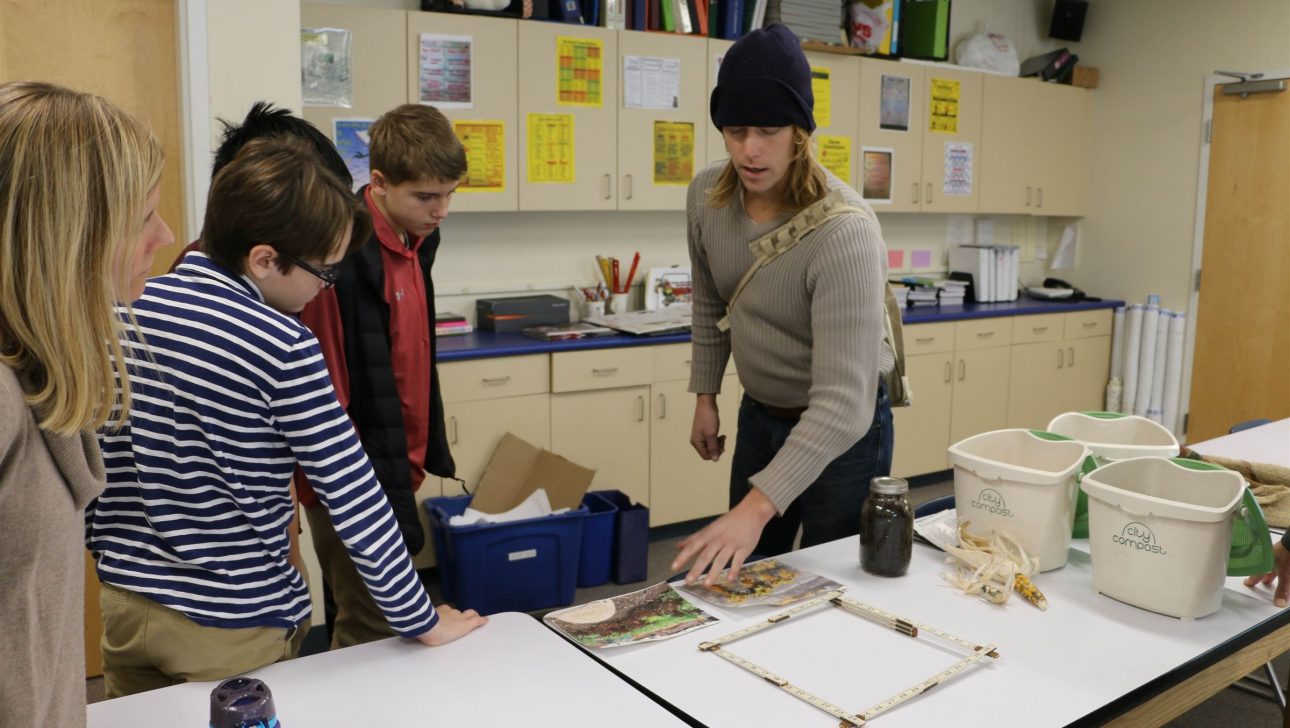During Friday’s middle school service-learning afternoon, DCD’s Green Club met with Adam Jankauskasfrom City Compost to learn about the process and benefits of composting. Currently, City Compost is working with over 2000 homes and businesses in Massachusetts to collect food scraps and process this material into finished compost.
Adam talked to the students about the steps involved in the process of composting, highlighting the important chemistry involved in creating soil that can ultimately be used to grow more food. Back at the processing plant, food scraps are mixed with other materials such as leaves and wood chips to aid in the creation of soil. There is a lot of monitoring and tracking involved in the process like measuring bacteria and oxygen to make sure the ultimate product is usable for food growth. “It’s really cool to see all the science involved” commented one of the Green Club members.




